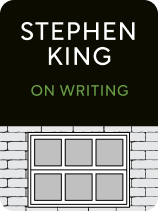

This article is an excerpt from the Shortform summary of "On Writing" by Stephen King. Shortform has the world's best summaries of books you should be reading.
Like this article? Sign up for a free trial here .
Do you want to know how to get good ideas for a story? Where do these ideas come from, and how do you know if they’re good?
Learning how to get good ideas for a story isn’t an exact science. You might have lots of ideas, and they might not always be good.
Keep reading for advice on how to get good ideas for a story from bestselling author Stephen King.
How to Get Good Ideas For a Story and What to Write About
You can write about anything. The only requirement is that you tell the truth.
Good writing pulls readers in by telling the truth. The characters seem real and behave in recognizable ways; the reader sees herself and her beliefs embedded in the story. In contrast, you likely stop reading a book when you can’t identify with any of the characters and find them implausible.
It’s common advice for starting writers to “write what you know.” Interpret this liberally. It’s not what you literally know (otherwise you couldn’t write about going to Mars) but rather about the truths you understand—what life feels like, how romance and friendships develop, the details of your work. Don’t take “write what you know” to artificially limit what you feel capable of writing about. The way you learn how to get good ideas for a story is to just start writing, and see what works, and to write what you know.
Before becoming a writer, John Grisham was a lawyer, and he took what he knew about law (details of whitecollar crime, the savagery of law firms) to write his breakthrough novel The Firm. The world and characters are believable, because they came from John Grisham’s truth.
You’ll probably start by writing in the genres you like to read—if you’re a science fiction fan, you’ll write science fiction. You might even emulate the style of writers you like, which is nearly unavoidable for novice writers until they develop their own voices.
What you shouldn’t do is write what you think other people will like—friends, colleagues, critics, book buyers. Don’t try to emulate the form, plot and style of bestselling authors. All this takes you away from authenticity, and your readers will know.
So write what you know and like, and bring your truths into the story. You know some unique truths about the world, which will make your writing unique.

———End of Preview———
Like what you just read? Read the rest of the world's best summary of Stephen King's "On Writing" at Shortform .
Here's what you'll find in our full On Writing summary :
- Stephen King's personal writing habits that led to superstar books like Misery and It
- How to make a story and characters feel real
- Why you should never use adverbs





